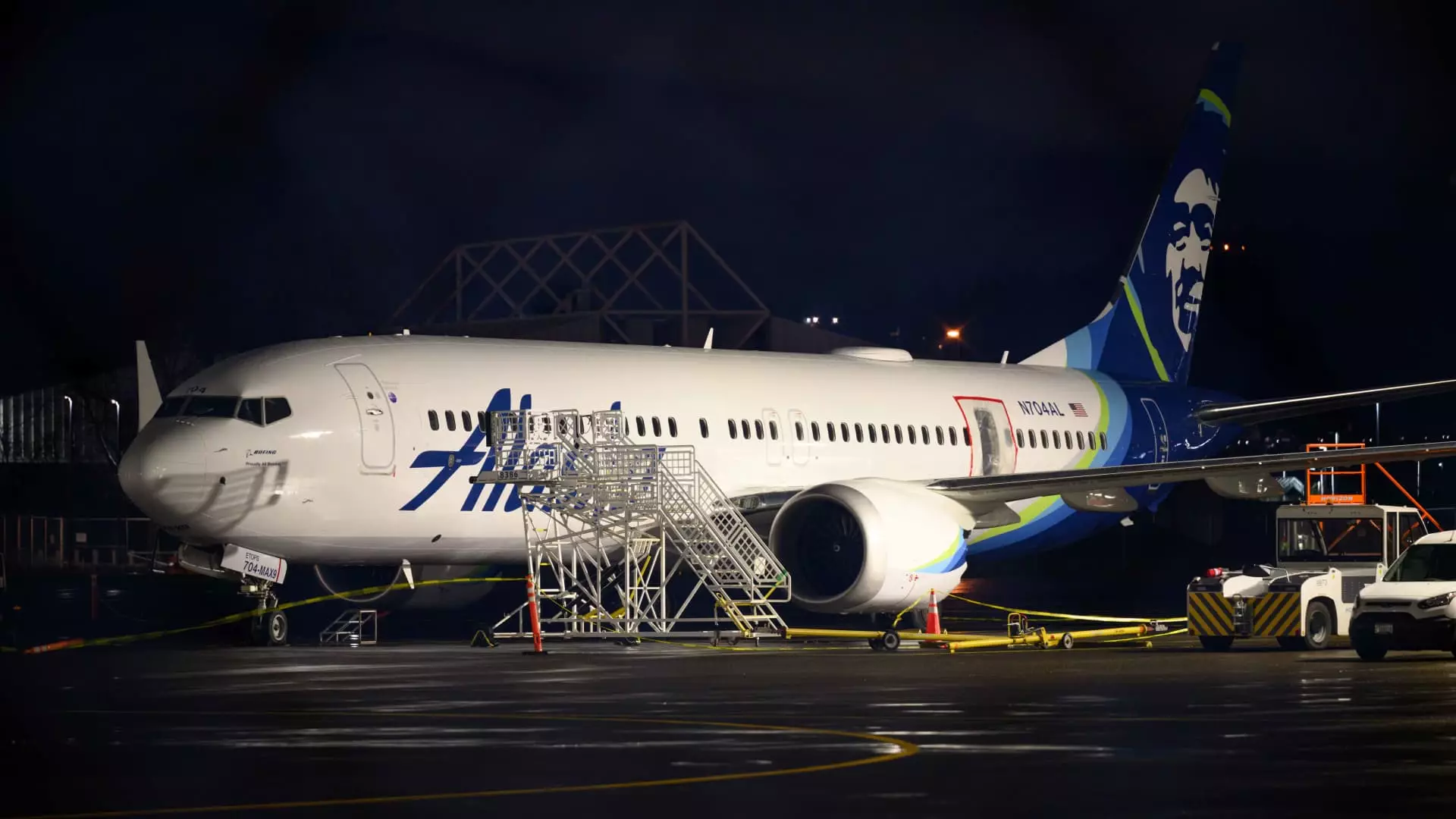The Federal Aviation Administration (FAA) has announced an upcoming audit of Boeing’s production line, specifically focusing on the 737 Max 9 model. This decision comes after a door plug blew off an Alaska Airlines 737 Max 9, resulting in the grounding of over 170 aircraft of the same model worldwide. The FAA intends to evaluate Boeing’s compliance with approved quality procedures during this audit, with the possibility of additional audits depending on the results. Furthermore, the agency will also assess Boeing’s self-monitoring capabilities and quality control standards in airplane production.
In response to the incident involving the Alaska Airlines flight, the FAA has launched an investigation into Boeing, citing the grounding of the 737-9 and other production-related issues in recent years. FAA Administrator Mike Whitaker emphasized the need to mitigate risks in light of these concerns. Although there were no serious injuries reported in the Alaska incident, the event has intensified scrutiny on Boeing’s quality problems and regulatory oversight within the industry.
Boeing Acknowledges Mistake
Boeing’s CEO, Dave Calhoun, addressed the situation internally by acknowledging the company’s mistake. He assured employees that Boeing would learn from the incident and move forward. This event, considered one of the most serious defects in recent years for Boeing, has prompted a reassessment of the company’s manufacturing processes and commitment to ensuring quality and safety standards.
Collaboration between Boeing and the FAA
The FAA plays a crucial role in the safety checks and issuance of airworthiness certificates for newly produced Boeing 737s. The agency’s decision to audit Boeing’s production line reflects a shared commitment to reducing risks and maintaining high standards within the aviation industry. By closely examining Boeing’s compliance with approved quality procedures, the FAA aims to identify areas for improvement and ensure that future incidents are prevented.
The incident involving the Alaska Airlines 737 Max 9 door plug has shed light on the need for heightened vigilance and comprehensive safety measures within the aviation industry. The FAA’s decision to audit Boeing’s production line underscores the importance of proactive quality control practices in aircraft manufacturing. As the investigation unfolds, it will be crucial for both Boeing and the FAA to address any identified issues promptly and transparently.
It is essential for Boeing to prioritize safety and accountability in all aspects of its operations. By implementing stricter quality control measures, enhancing self-monitoring capabilities, and fostering a culture of continuous improvement, Boeing can regain trust and confidence in its products. Additionally, the FAA should continue to strengthen its oversight and regulatory processes to ensure that aviation manufacturers adhere to the highest standards of quality and safety.
Ultimately, the incident with the 737 Max 9 serves as a reminder of the collective responsibility shared by aircraft manufacturers, regulatory bodies, and industry stakeholders. The pursuit of excellence in manufacturing, maintenance, and safety practices is paramount in safeguarding the well-being of passengers and the integrity of the aviation industry as a whole.

Leave a Reply